Heroes Amid Horror—And Why October 7 Must Always Feel Like Yesterday
August 10 , 2024 - Issue #57
We have been in the midst of a waiting game for eleven days (a waiting game that might be up by the time you read this)—will Iran and Hezbollah attack or not? I too have been waiting to see what will happen before publishing this edition of my newsletter. But no more. The next issue will revert back to something more geopolitical or strategic. But today, while we continue to wait and Israelis endure the psychological stresses caused by Iran’s and Hezbollah’s threats, I want to address an issue that has been bothering me for some time—how to keep our focus and energy on advocating for Israel in the face of so many that stand in our way.
Several days ago, I had the privilege of spending considerable time with Lt. Col. (res.) Jonathan Conricus, the former International Spokesperson for the IDF. I introduced him before a talk he gave, hosted him for lunch and dinner, attended other events with him, and drove him to and from the airport. As you can imagine when two people spend much time together, our conversations were all over the place—from professional to personal—from frustrations experienced to family treasured—and about how after October 7 he would steel himself to face and respond to the onslaught of skepticism and judgement voiced by some of the broadcasters on whose shows he appeared.
Like us, after October 7, the nightmare of that day remained fresh in Conricus’ memory for a while. But as events evolved, and worldwide false Palestinian narratives grew, advocating for Israel required responding accurately and patiently to numerous emotional, and I imagine exhausting, verbal confrontations. Relentless one-sided questions sometimes delivered in an accusatory tone, often based on false facts and/or flimsy context, increasingly dominated the discourse faced by all Israeli spokespersons.
Nevertheless, Conricus felt compelled to soldier on and so must I today, each in our way—and perhaps you too—for Israel’s benefit, to counter the rise of antisemitism, and for our families and friends—Jews or non-Jews—because I am also firmly convinced that the instigators of the battles now targeting Israel and Jews worldwide have their sights set on a much greater agenda to the detriment of mankind.
But where and how will we find the strength to continue the fight, day after day, and especially if you live where you do not yet feel the sword of hatred sweeping your way? Because, frankly, it’s exhausting to fight the fight. So much more fun to play pickleball, read a book, take a bike ride, or do any of the other pleasurable things we do. Seemingly so much more necessary to work our jobs, bring up our children, spend treasured time with family, and perform all the tasks, joyous and otherwise, that make up normal lives. But ignoring what is happening in the world around us amounts to no more than kicking-the-can-down-the road to a much more perilous place. And by doing so, by not directly dealing with what assails us in small and large ways, guarantees that the danger we face will become the destiny we fear.
Until I spent time with Conricus, I had few clues as to how to maintain my determination and was not sure what advice to give for those seeking to do the same. I just bulled through. But then, something Conricus said led me towards the light. Driving the point home was something I heard a U.S. Senator say a day later. And then I read of a new film that will come out on Tisha B’av—the saddest day on the Jewish calendar because it commemorates the destruction of the First and Second Temple and subsequently much more.
Allow me to explain.
Shortly after October 7, Conricus (who retired in 2021) went back to the spokesperson’s office. He did so to help shoulder the load created by numerous daily requests the office was receiving for spokespersons to appear on many broadcasts, some friendly some not, as well as to take journalists and others around to view in person the tragedy that had befallen Israel. Conricus volunteered to cover a night shift so that the others could get some semblance of rest and normality in the sea of media frenzy then prevailing. Doing that took a toll, as it would on anybody, especially as the weeks passed after October 7, and the vividness of that day receded and the verbal combat he was forced to engage in mounted. To counter that, almost as an aside, Conricus said that “at the end of certain days, I felt the need to remind myself what we were fighting to defeat these monsters.” Not, I am sure, because he had forgotten, but I suspect to fortify him to continue. To accomplish that, he repeatedly viewed the videos of what befell Israelis on October 7, much or most I think, produced by Hamas and then copied by the IDF from Hamas’ Telegram sites.
I saw many of those videos compiled into a film at the IDF’s spokesperson’s office in early December when I visited Israel. The film contained 47 minutes of horror, including a beheading. I wrote about it in Issue #36 of this newsletter (view it here). To this day, few people are allowed to see it, ostensibly because of concerns over family privacy. I think that a mistake, but I will not belabor the issue now. My wife didn’t want me to see it because she feared it would have a lasting traumatic impact on me. She was correct about the lasting impact but not that it would be traumatic. Instead, it made me determined. Very, very determined to fight against the scourge of terror that Hamas and its kindred present and have unleashed.
So too was the reaction of the U.S. Senator that saw the film (I will not name the person because of confidentiality issues). The Senator made clear that it had made a lasting impact on him/her and instilled a recognition of what Israel, Jews, and America face.
But what about all those that by circumstance, or otherwise, have not seen the film? Inundated by nightly news broadcasts, some much slanted some less so, it becomes easier and easier to forget how this tragic war started and why Israel must win it decisively. Not so much due to intellectual forgetfulness but because of the dissipation of our initial emotional reactions regarding what Hamas did that are so important for forming our opinions. Inundated by social media where facts are often fiction and emotional imagery predominates, it also has also become easier to forget that it is the perpetrators of October 7 that are at fault and precipitated this war, making the eradication of Hamas necessary and diminishing Hezbollah mandatory. And seeing the passion of pro-Palestinian demonstrators, far too many forget, or don’t know, that if what they demand were to happen Jews would suffer unspeakable atrocities in Israel and Jews in the diaspora would face being ostracized, a return to the pogroms of Eastern Europe and perhaps, much more. What then, is the counter to such forgetfulness?
Knowledge, a visceral remembrance that guides us, and recognition of our heroes.
Knowledge many of us have, although we could always have more. Just the fact that you are reading this newsletter is evidence of your search for knowledge (not intending to praise myself here—it’s not what I write or the quality thereof, but your desire to learn is what I am referring to). So too, I suspect, many readers of this newsletter have gained much knowledge of the events of October 7 through a myriad of other sources.
But do you have a visceral remembrance that is always present and therefore motivates you to fight the information war battle that we must wage? Do you have the energy to lean against what is barreling towards Israel and us? If not anymore, fortunately, there is an easy way to regain this by forcing ourselves, even if we think we know the story, to rewatch the horror that befell Israelis on October 7.
For the families of those lost, those held captive, and those that survived but were traumatized—they live the horror every day. In opposite, many of us do not. However, there is nothing special about us who escaped that—just good fortune guided by circumstance for now. Thus, I think it important, just like for Conricus, that we repeatedly see with our eyes and feel with our hearts what happened October 7. Otherwise, visceral remembrance fades—replaced by a flood of imagery and passionate, often specious or one-sided, arguments produced by Israel’s enemies designed to mask the depravity of Hamas’ conduct and Iran and Hezbollah’s goals. That then saps us and distracts us. Therefore, I suggest you watch if you have not, and again even if you have, the following:
Screams Before Silence – Sheryl Sandberg’s outstanding film about the sexual violence inflicted on women in Israel by Hamas.
Supernova: The Music Festival Massacre – I saw this film during the winter. You can rent it for $8.00. It contains many scenes that I also saw in the IDF’s 47 minute film.
We Will Dance Again – Premiering on Paramount+ this fall.
However, although knowledge and visceral remembrance may be enough to motivate us, also important is our recognition of those who strove to make a difference, who persevere and who are resilient. In short, pride and praise for our heroes. By learning of them, perhaps we will motivate ourselves to do our part.
It is the pride I felt for the individual heroes of October 7 that motivated me to write this essay. A pride stimulated in me by an article I read in the Times of Israel on August 8 about a movie debuting on August 13 called October 7th: Voices of Pain, Hope and Heroism. It is about the “loss, courage, hope, and strength of the Jewish spirit through personal stories of 5 families whose lives changed forever on October 7.” I have not seen it, but I will. It was produced by Aish, a Jewish educational organization that according to its web site has a mission to “inspire people to live more thoughtful, spiritual, and impactful lives through learning and sharing timeless Jewish wisdom.” I have had no contact with Aish. Nor do I advocate for or against it. But the film Aish produced sounds interesting. To sign up to see it, click here.
Reading that Times of Israel article started me on an internet search for more of the same. I learned from another Times of Israel Article written in May that a new book about Israeli heroes on October 7, called We’re On Our Way: The Civilians Who Saved Lives On October 7, has been published in Hebrew and is now being translated into English. Also, coming on September 24, is a new book titled, The Gates of Gaza: A Story of Betrayal, Survival, and Hope in Israel’s Borderlands. I preordered it after reading the description that begins as follows: “A gripping first-person account of how one Israeli grandfather helped rescue two generations of his family on October 7, 2023.” In addition, I found a plethora of other articles and video works about individuals who made a difference. Over time, I intend to watch, read, and highlight those I think worthwhile for you to consider looking at.
I will do all this—continue to learn, maintain my visceral remembrance, and honor the October 7 heroes—not to titillate or entertain, but to motivate me to do all I can to ensure Israel’s survival and to stand against antisemitism.
Perhaps you will join with me, by building your knowledgebase, maintaining your visceral remembrance, and learning of the heroes of October 7 and retelling their stories. Because together and individually, especially if we are motivated, we can make a difference.
Also, if you have an interest in the danger Hezbollah presents and how it came to be, you might consider purchasing my book which can be obtained on Amazon here.
Analysis of Potential Reactions by Iran and Hezbollah to the Assassination of Haniyeh and Shukr—Written by Yaakov Lappin and Tal Beeri for the Alma Research and Education Center—August 3, 2024
The Secret War Behind the Exchanges of Fire in the North—Written by Brig. Gen. (res.) Eran Ortal for the Begin-Sadat Center for Strategic Studies—August 8, 2024
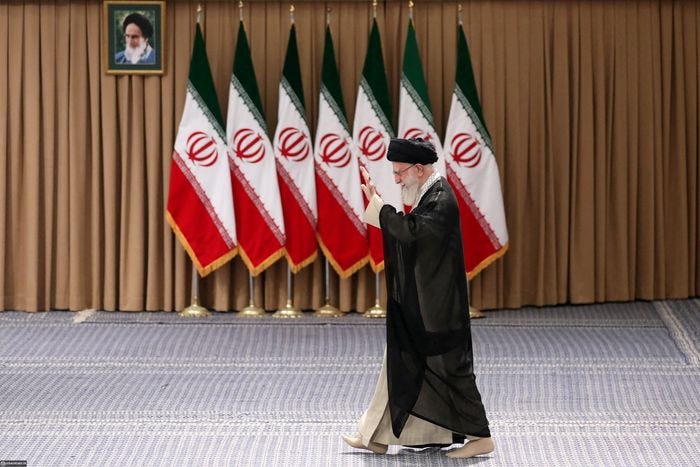
U.S. Intelligence Assessment Drops Claim That Iran ‘Not Currently Undertaking’ Nuclear Weapons Development—Flash Brief from the Foundation for Defense of Democracies—August 10, 2024
How Iran Finances Attacks Against Israel—Written by Aviram Bellaishe for the Jerusalem Center for Public Affairs—August 7, 2024
The Death of a Hezbollah Lifer—Written by Matthew Levitt for the Washington Institute for Near East Policy—July 31, 2024
It’s Not a Border. It’s a Front.—Written by Brig. Gen. (res.) Eran Ortal for the Begin-Sadat Center for Strategic Studies—August 5, 2024
Residents of a Frontline Israeli City Feel Hezbollah’s war ‘Getting Closer’—Written by Nadeen Ebrahim and Mike Schwartz for CNN—August 8, 2024
Who was Ismail Haniyeh?—Written by Ksenia Svetlova for the Jerusaelm Strategic Tribune—August 2024
Ismail Haniyeh’s Killing in Iran Brings Israel Closer to Victory—Written by Seth J. Frantzman for the National Interest—July 31, 2024
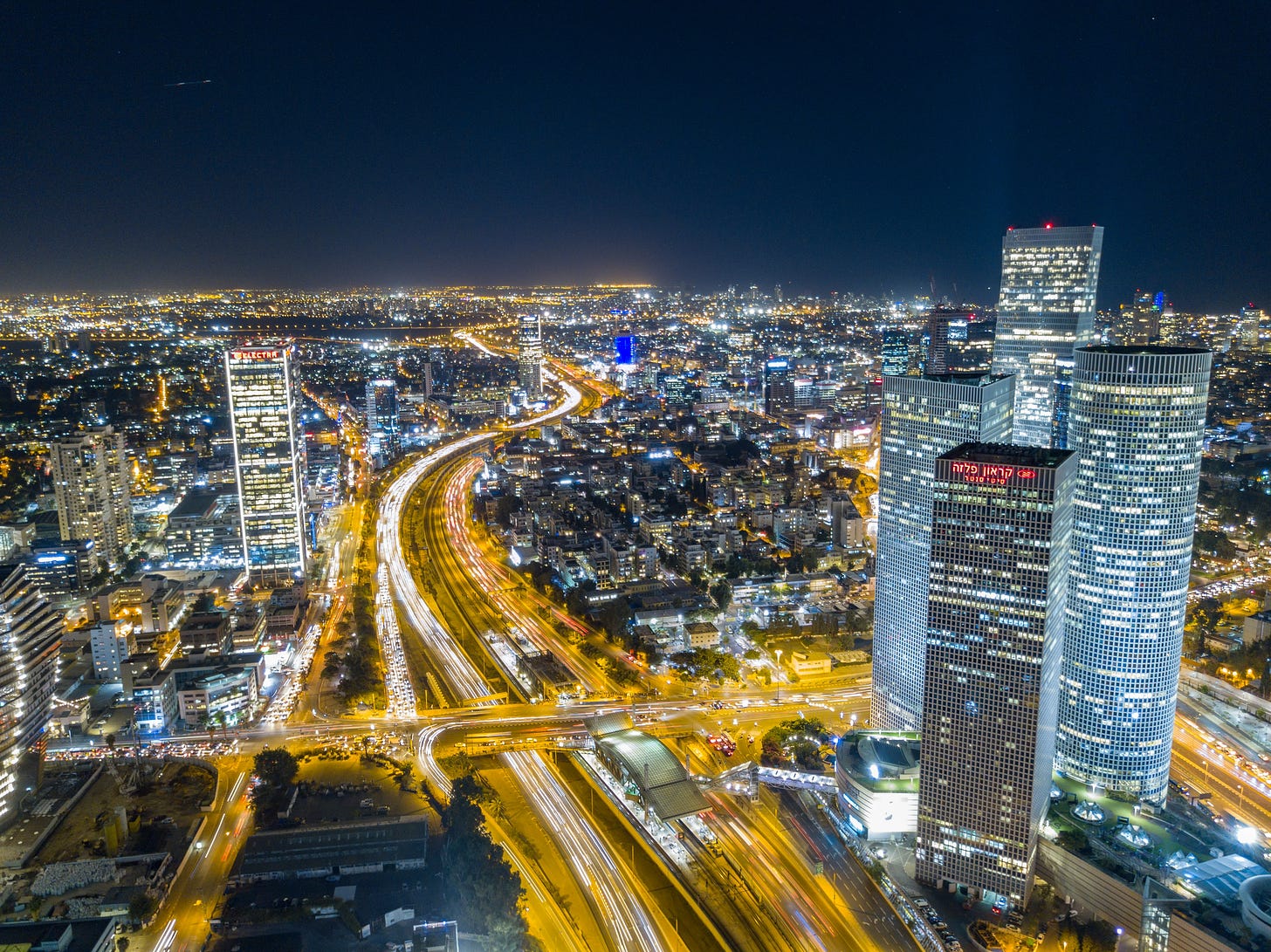
High-Tech in Wartime—Written by James Spiro for Michael Oren’s Clarity—August 1, 2024
War Diary: But What Do I Do with the Dogs?—Written by Sheri Oz for her Substack - Israel Diaries—August 8, 2024
When Rockets Come - War Diary—Written by Dave Bender for DavidBrianBender.com: Compelling Photography—August 7, 2024 - This post has several videos well-worth watching for understanding what it is like to be under attack by Hezbollah’s missiles.

In Light of a Potential Iran Attack: Which Airlines are Flying to Israel, Which Have Cancelled?—Written by Moshe Cohen for the Jerusalem Post—August 7, 2024

How Can the IDF Most Effectively Target Hezbollah in Lebanon? - Analysis—Written by Amir Bohbot for the Jerusalem Post—July 6, 2024
Israel Bombs Hamas HQ in Precision Strike, Refutes Hamas Casualty Reports——Flash Brief from the Foundation for Defense of Democracies—August 10, 2024
Israel’s Struggle with Hezbollah—A War Without End is now available in eBook and hardback format on Amazon and IngramSpark. This compelling narrative explores Hezbollah’s origins and cancerous growth, traces Israel’s response, and reveals Israel’s present readiness to meet Hezbollah’s challenge.
Cliff Sobin
Important Link—Alma Research and Education Center: Understanding the Security Challenges on Israel’s Northern Border



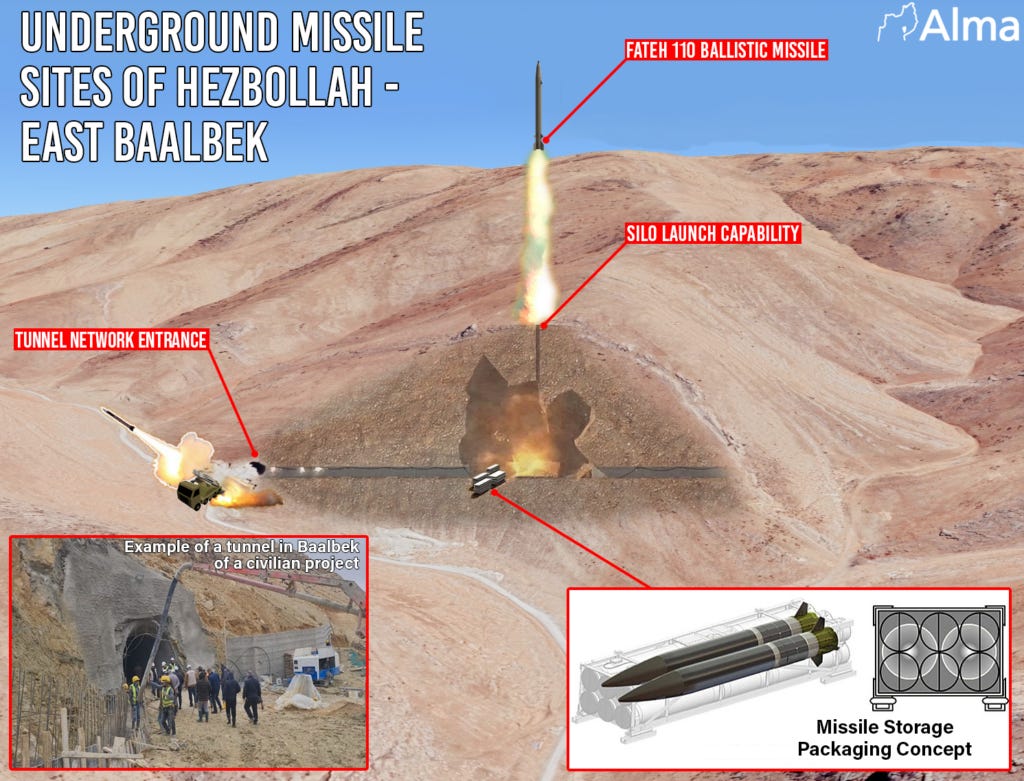
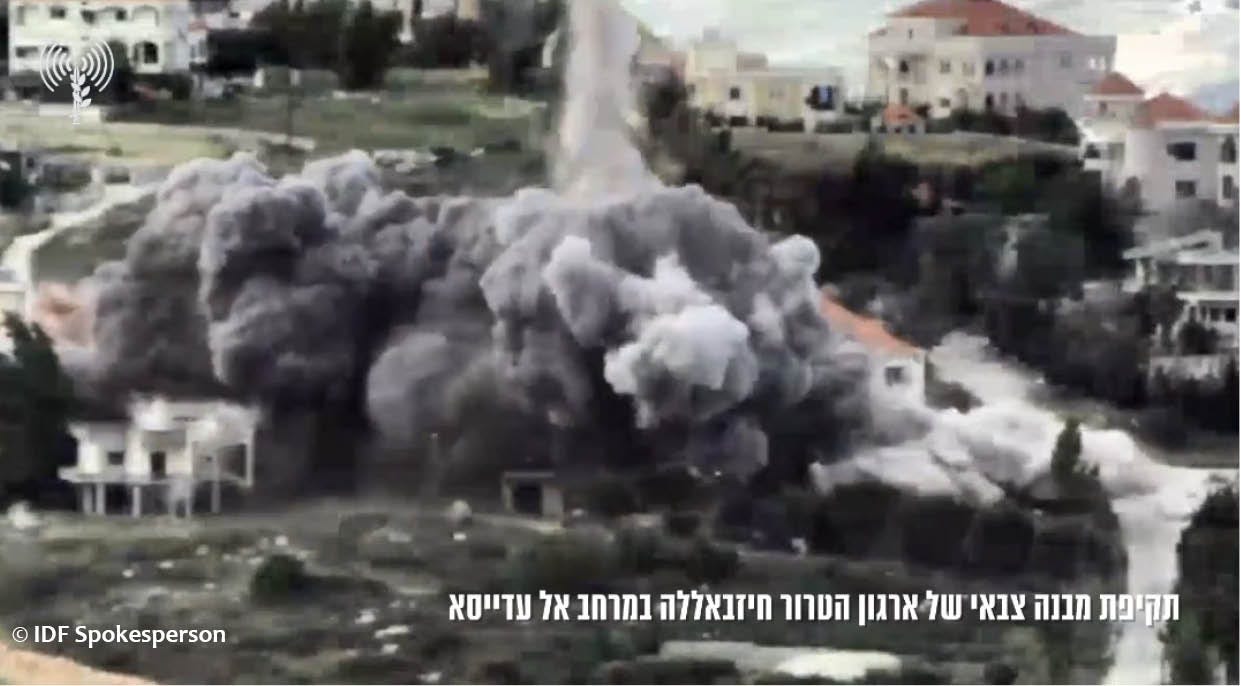

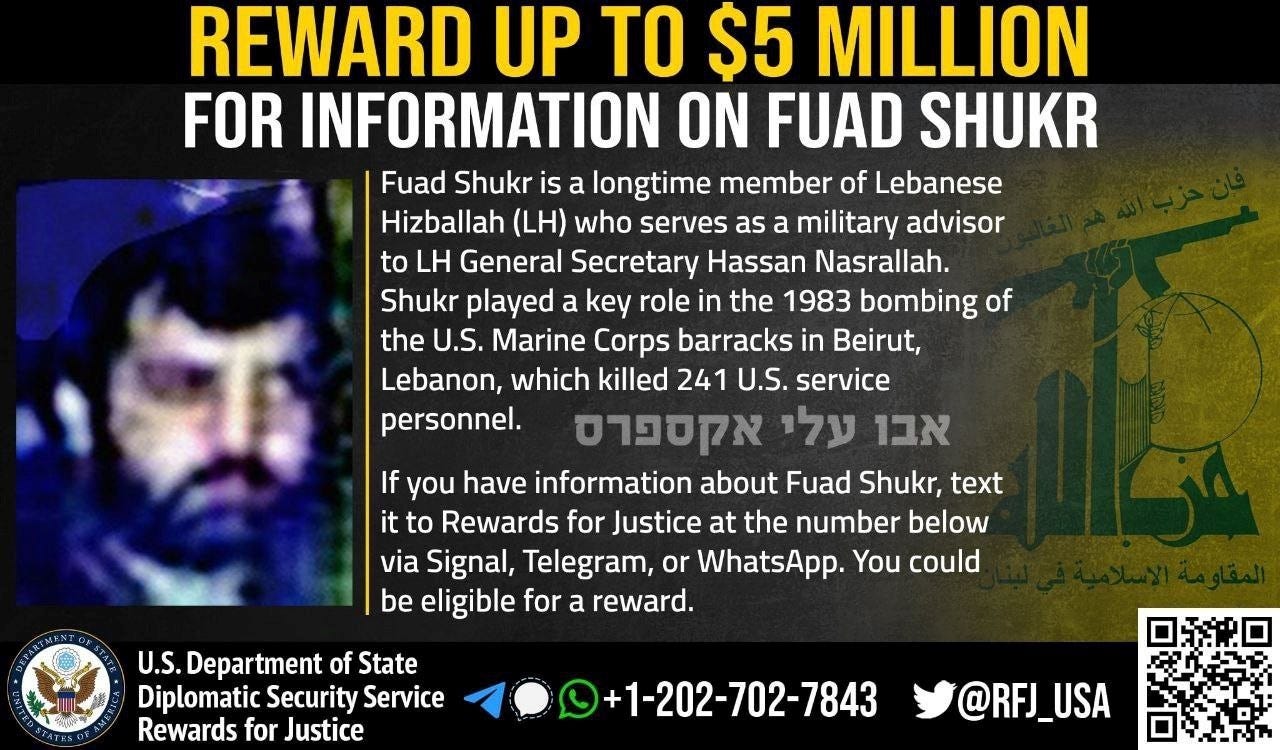
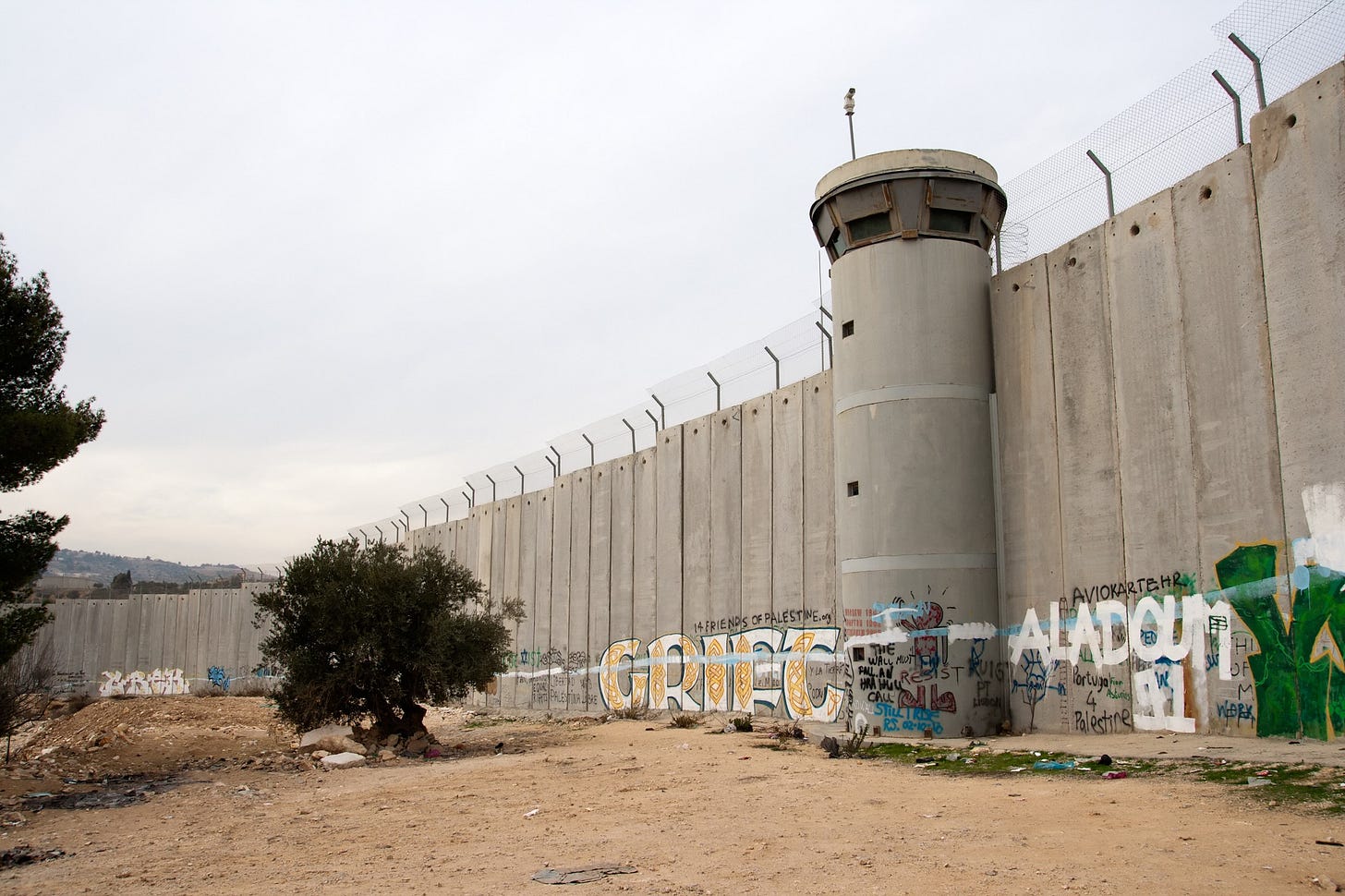
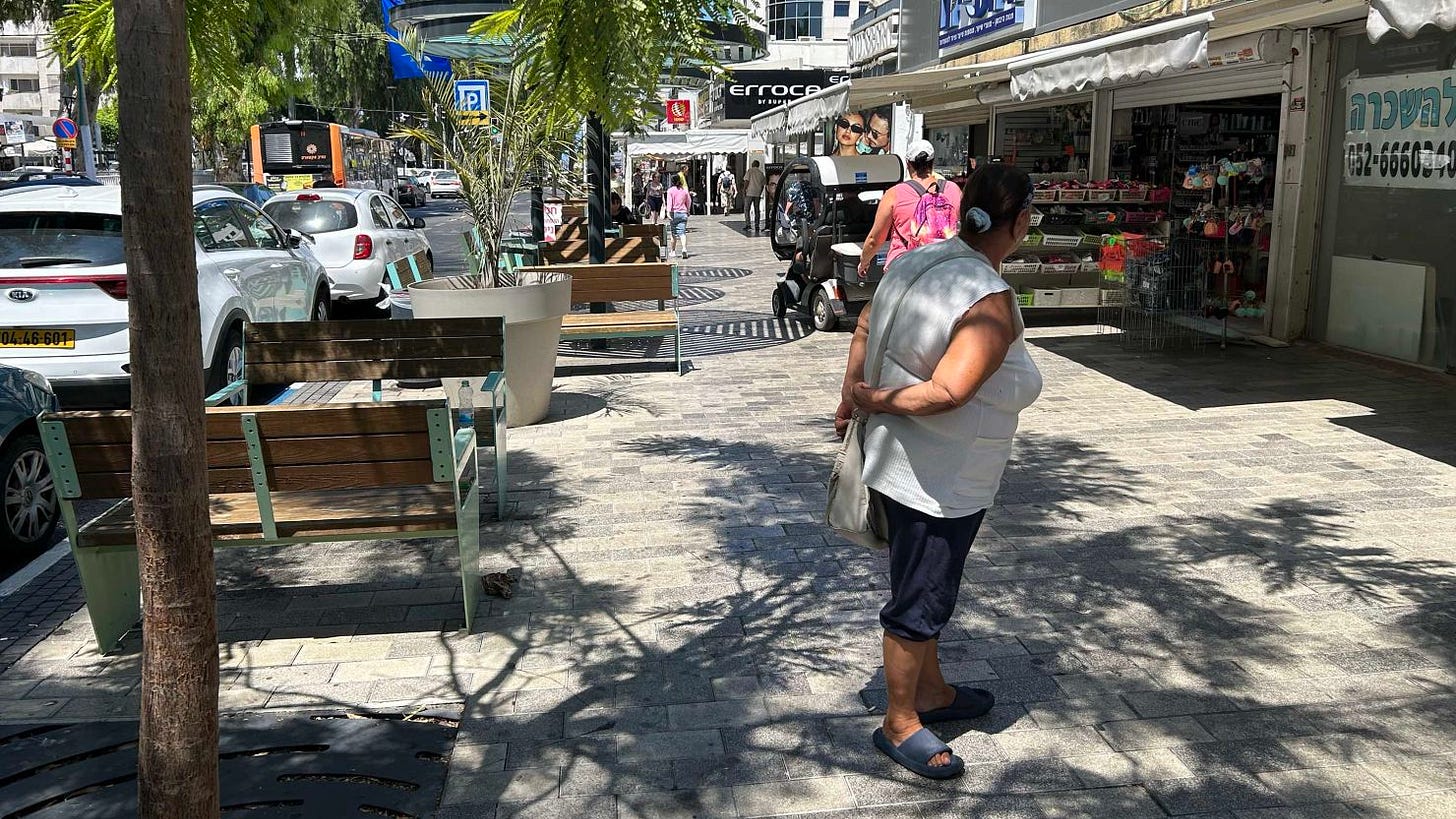
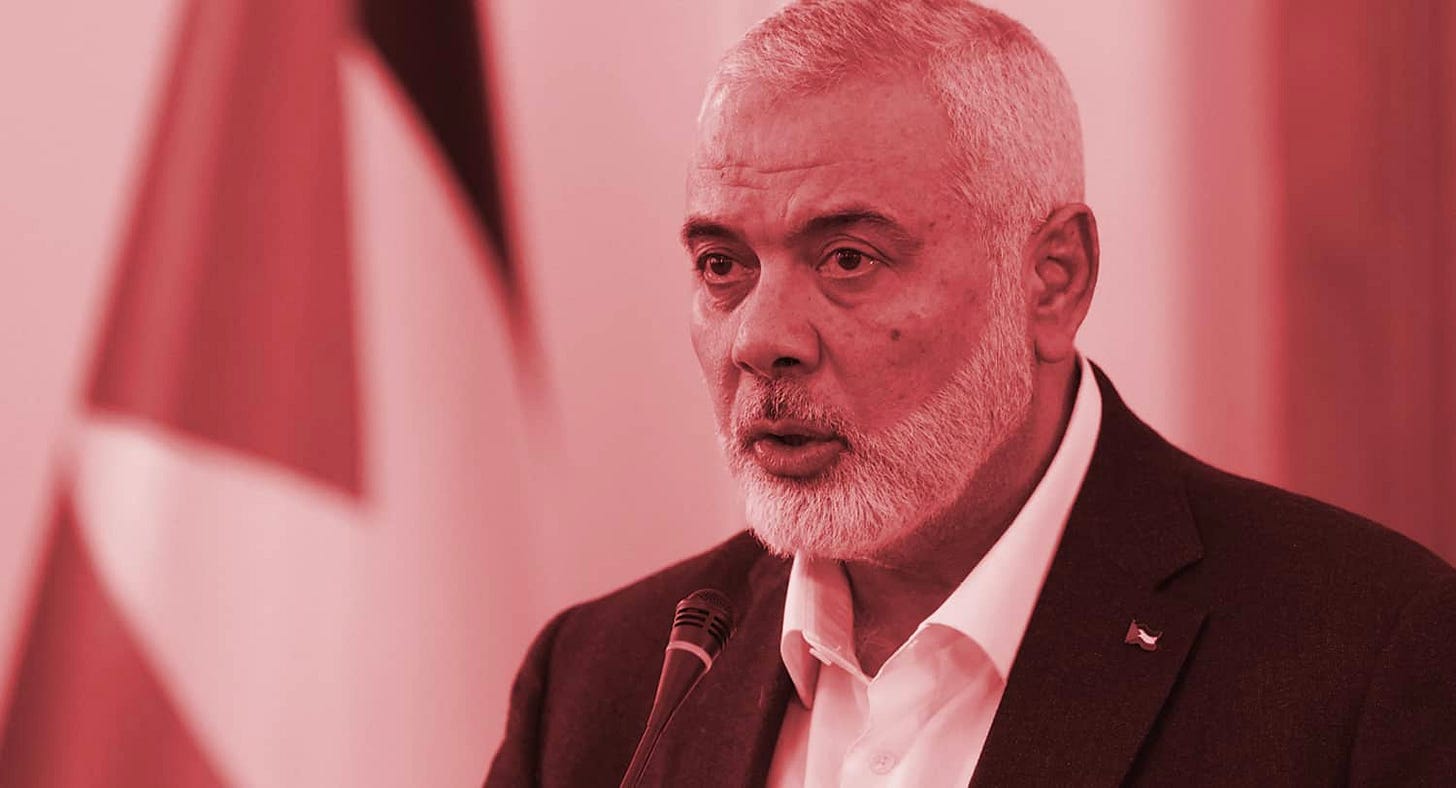

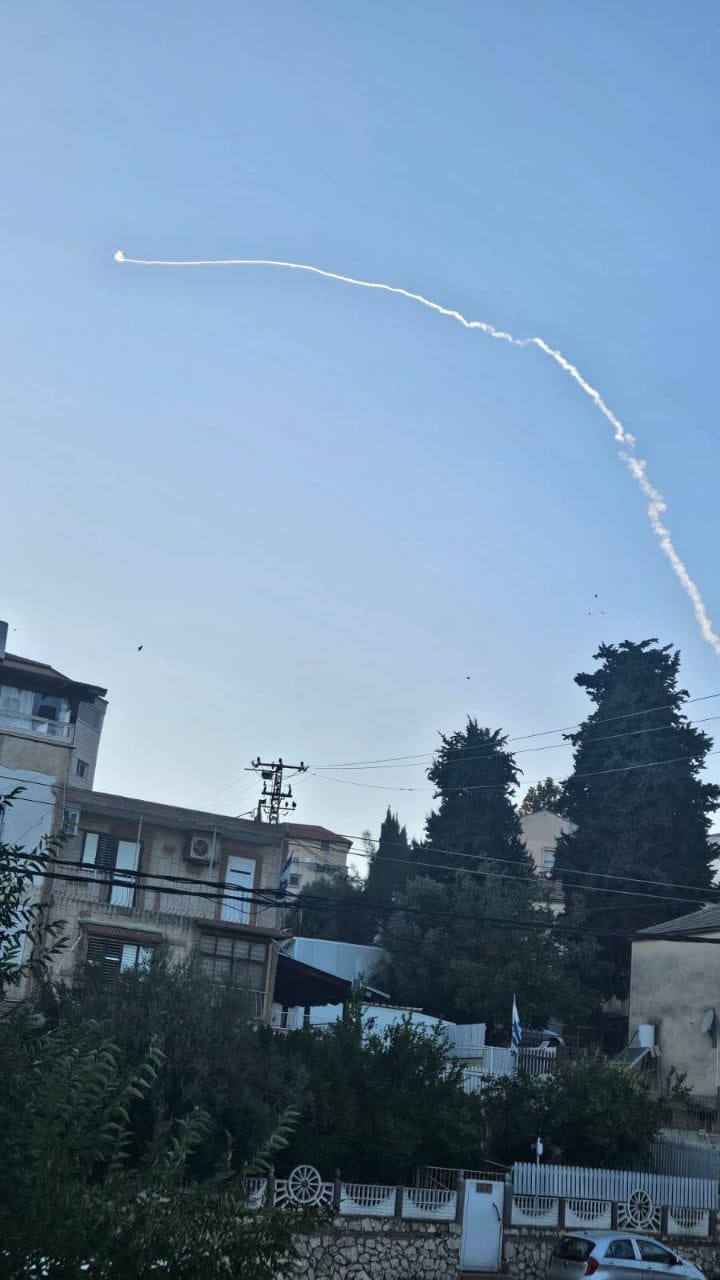

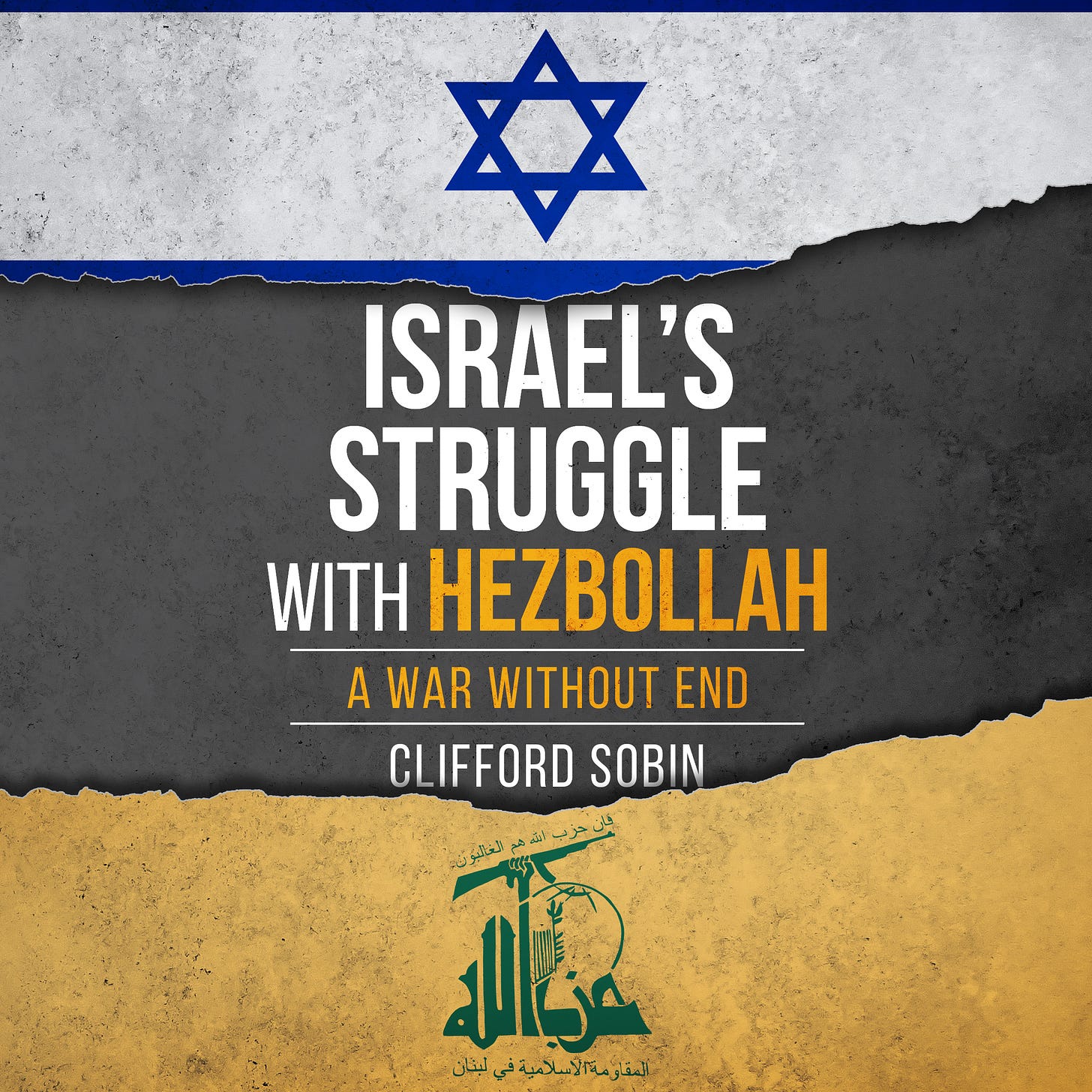
In all this lovely and informative long article you missed out the tragedy of 7/10 is that many survivors who haven’t been able to handle what they saw / suffered have committed suicide.